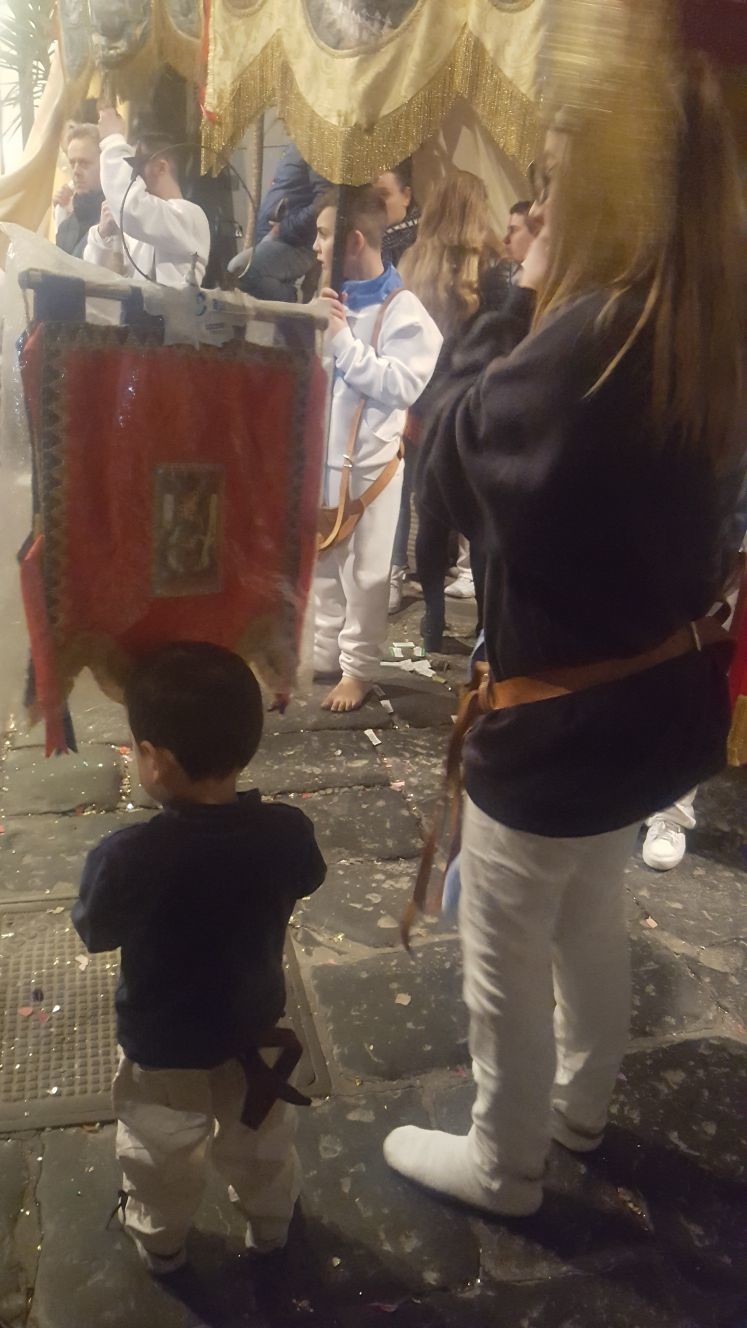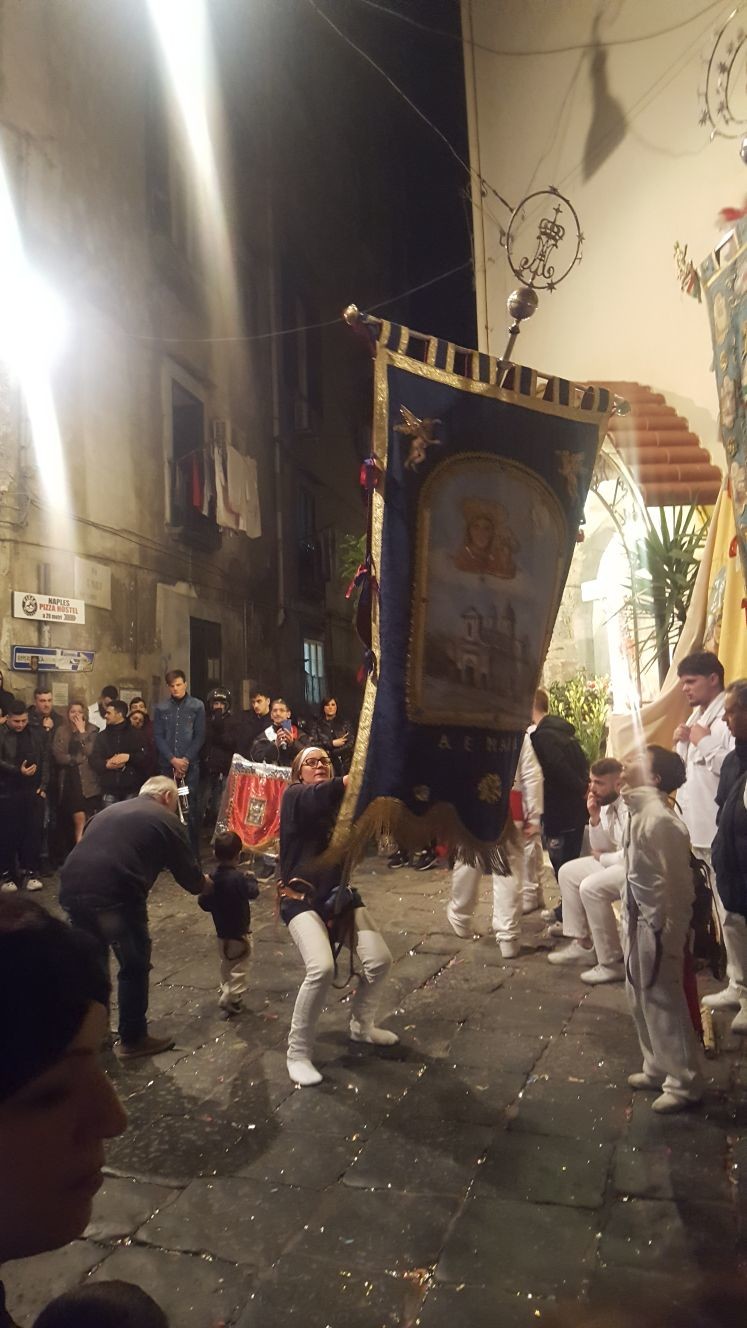Neapolitan traditions: Fugenti
They run, shut, cry, pray, maledict, fall down on the knees and move step by step to altar. They are called “Fugenti”, kind of pilgrims, which have their own sanctuary Madonna Del Arco in small town Sant’ Anastasia.Their demonstrations is possible to see on streets of Naples, causing bewilderment and curiosity of tourists. Only few foreigners know about the sense of this tradition, speaking honestly, not even every Italian can tell you about it.

How to recognize them?
It’s easy to see them already from the far. If while walking in historical center of the city you start to catch oncoming clip-clop of drums combined with trumpet accords, and turning round the corner you see a procession in white clothes, it means that fugenti are going close to you. Main external features of their identity are bare feet, all-white clothes, big flags in hands and beating the rhythm by feet.

The meaning of tradition
Principal sense of this custom is adoration of Blessed Virgin Maria dell’Arco. Such devotion is connected with lots of miracles and mercies given to people of Sant’ Anastasia during the years. Processions started in XVI century, according one of the versions, fugenti do it to thank Madonna and ask her for new miracle. Another version sounds really interestind and is called “first miracle of Madonna”. One of the ball players who was angry because of his loss, hit the ikon of Madonna and it started to bleed. The man was executed for his blasphemy and seems that day fugenti always walk barefoot and make satisfaction for sin.
Age and sex of the participants is not that important, it’s possible to meet everyone from toothless old persons to small children who recently found their legs. On my side it looked extremely fascinating and unusual.
Photo gallery
Want to have your own Erasmus blog?
If you are experiencing living abroad, you're an avid traveller or want to promote the city where you live... create your own blog and share your adventures!
I want to create my Erasmus blog! →



















Comments (0 comments)